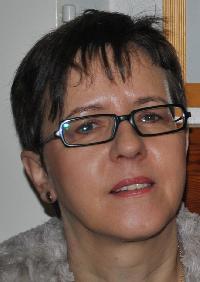| Pages in topic: [1 2] > |
Off topic: Do you consider yourself an expert? Thread poster: liz askew
|
|---|
liz askew 
United Kingdom
Local time: 15:24
Member (2007)
French to English
+ ...
Hello
Quite often when Proz members ask questions they say "any experts out there"?
Well, I am a linguist, but not an expert, so I wondered what others thought.
I consider that I am translating for experts, rather than being an expert myself in anything in particular. Maybe be a highly qualified linguist, but expert?
What are you views?
Regards
Liz Askew
| | | |
[quote]liz askew wrote: "any experts out there"?
I believe I may be the opposite of what you suggest you are.
I use my "expert" knowlwedge in biomedicine (over 35 years as a professional) to translate from Spanish (which I lbegan to learn 10 years ago) to English. I developed "linguistic" ability writing up clinical laboratory methods, protocols and short articles for publication or presentation at conferences, which was self-taught and un-structured
But I wonder if someway along the road these two concepts might merge.
I would like to add that we are all "experts" in something. I remember when I was younger as a trainee, we all had to prepare a presentation on a topic of current interest. Imagine my surprise when my Professor (Head of University Department), called upon me "David Brown, the current expert on xxxxxxx" to deliver my lecture.
[Edited at 2009-02-16 16:28 GMT]
| | | |
| Instant expert - just add google | Feb 16, 2009 |
A translator friend of mine once defined us as "instant experts" - i.e. having the research skills to find out everything we need about any subject we're asked to translate in 5 minutes flat. And then promptly forgetting it all 5 minutes after handing the translation in!
Anyway, to answer your question, no, not really. I certainly know a lot more about my specialist areas than I do about other stuff, but as you rightly say we're translating for experts - most of us aren't experts ou... See more A translator friend of mine once defined us as "instant experts" - i.e. having the research skills to find out everything we need about any subject we're asked to translate in 5 minutes flat. And then promptly forgetting it all 5 minutes after handing the translation in!
Anyway, to answer your question, no, not really. I certainly know a lot more about my specialist areas than I do about other stuff, but as you rightly say we're translating for experts - most of us aren't experts ourselves (I could reasonably regard myself as an expert in the properties of various screen-printable polyester and polycarbonate films used as human/machine interfaces, but even there my expertise is now over 10 years out of date!)
So I'll just stick with the "instant expert" label, although with the proviso that I only accept work in my specialist areas - I have to be confident that I know what to look up, where to find it and that I can understand it once I have found it.
[Edited at 2009-02-16 10:03 GMT] ▲ Collapse
| | | |
Jack Doughty 
United Kingdom
Local time: 15:24
Russian to English
+ ...
In memoriam
|
|
|
| How long is a piece of string? | Feb 16, 2009 |
All depends what you mean by "expert".
The phrase "any experts out there" (out where? I'm "in" here, but that's another subject!) seems to imply the idea of a walking encyclopedia who has an instant, comprehensive and error-proof answer to every question. I have never met any such person (and if I did, I wouldn't trust them further than I can throw).
I have what I would call "expertise" in a couple of subject areas. That means that I am confident about translating in those ar... See more All depends what you mean by "expert".
The phrase "any experts out there" (out where? I'm "in" here, but that's another subject!) seems to imply the idea of a walking encyclopedia who has an instant, comprehensive and error-proof answer to every question. I have never met any such person (and if I did, I wouldn't trust them further than I can throw).
I have what I would call "expertise" in a couple of subject areas. That means that I am confident about translating in those areas, I can follow the logic of the texts and the principles behind them, I have a direct grasp of the way the people in the trade in my target language phrase things, I have a number of paper reference works (bilingual and monolingual in both languages) and a good grasp of the Internet sources that I can refer to when I need to. And in some aspects of these subjects I have attended formal training sessions.
Do I know everything in these areas?
No.
I may or may not feel that a call for "any experts out there" applies to me - it depends on the specifics of the actual question, not the generic subject area covered. ▲ Collapse
| | | |
Karin Seelhof 
Local time: 16:24
Member (2006)
English to German
+ ...
| I try to draw a realistic picture of myself | Feb 16, 2009 |
With an experience of more than 20 years in engineering-companies I noticed that some translation questions are quite clear to me, whereas translators from other fields are struggling.
So I am an "expert" in the engineering field in comparison to them.
But when meeting my old colleagues, who are technicians, mechanics and eletricians, I quickly recognize, that they have more expertise in the engineering field than I will ever have....
| | | |
Nigel Greenwood (X) 
Spain
Local time: 16:24
Spanish to English
+ ...
| How do you qualify "an expert"? | Feb 16, 2009 |
What is an expert? Who or what gives you that qualification? Does a university degree mean you are an expert?
I studied engineering in the UK, many years ago. After obtaining my degree, I started working in commerce, on moving to Spain that became international commerce, related with structural decoration and carpentry. Now I moved into full time translation, as a result of doing many translations for a Spanish lawyer into English, I have become specialized in Legal documents. Howev... See more What is an expert? Who or what gives you that qualification? Does a university degree mean you are an expert?
I studied engineering in the UK, many years ago. After obtaining my degree, I started working in commerce, on moving to Spain that became international commerce, related with structural decoration and carpentry. Now I moved into full time translation, as a result of doing many translations for a Spanish lawyer into English, I have become specialized in Legal documents. However, my commercial/engineering background helps me in translating Technical documents.
So, am I an expert? If so, in what; Legal, Commerce, Engineering?
All I know is that I have regular clients who are pleased with the work I do for them in Legal, Commercial and Engineering fields.
Nigel ▲ Collapse
| | | |
Parrot 
Spain
Local time: 16:24
Spanish to English
+ ...
| In many cases | Feb 16, 2009 |
(correct me if I'm wrong) expertise would refer to the length of time you have been following developments in a field; you may have studied it, you may have worked in it, but you are in any case more than superficially interested in it, probably a practitioner in some sense, and up-to-date on its developments.
To clarify: certain specializations are not, or were once not, academic offers. But some people have engaged in pioneering work in those fields. They are quoted and referred t... See more (correct me if I'm wrong) expertise would refer to the length of time you have been following developments in a field; you may have studied it, you may have worked in it, but you are in any case more than superficially interested in it, probably a practitioner in some sense, and up-to-date on its developments.
To clarify: certain specializations are not, or were once not, academic offers. But some people have engaged in pioneering work in those fields. They are quoted and referred to by people teaching those fields today as "experts". Some of my ex-bosses fall under this category and I have a profound respect for them. ▲ Collapse
| | |
|
|
|
| What is expertise? | Feb 16, 2009 |
Victor Dewsbery wrote:
All depends what you mean by "expert".
Do I know everything in these areas?
No.
Expertise is knowing enough about a specific subject area to the point of being able to coherently write one's own concepts and ideas (even if not exactly state-of-the-artish) on the subject in both source and destination languages.
It means the individual knows the nuts and bolts in that area, and is able to understand the meaning of the message even in poorly written text.
I have a few areas of expertise, as well as some others in which I'll admit my absolute ignorance. Between one an the other, there are numerous shades of grey.
| | | |
When it comes to translating documents in the environment subject matter, yes, I do consider myself an expert. I am, however, not an expert in language (I only speak a handful of them) and I am not an expert in environmental science - I'll leave that to environmental engineers and scientists.
| | | |
Monika Coulson 
Local time: 08:24
Member (2001)
English to Albanian
+ ...
SITE LOCALIZER | Expert on what? | Feb 16, 2009 |
It's all relative IMHO. I consider myself expert on a couple of translation fields, but not in every field. I also let my clients know of my expertise or lack of it when they ask my to help with certain subjects.
Monika
[Edited at 2009-02-16 19:33 GMT]
| | | |
Kay Barbara
United Kingdom
Local time: 16:24
Member (2008)
English to German
+ ...
| Necessity of being an expert & Google | Feb 19, 2009 |
First things first: yes, I consider myself an expert in some (my specialty) fields.
I absolutely agree with Monika. I think it is essential for good translators to be experts in at least one field. Failing this, you would just be "a translator" and a lot of people call themselves that. What really separates translators from people who just speak 2+ languages is the fact that they are experts. This, of course, does not mean that you know every single detail about a subject (there is ... See more First things first: yes, I consider myself an expert in some (my specialty) fields.
I absolutely agree with Monika. I think it is essential for good translators to be experts in at least one field. Failing this, you would just be "a translator" and a lot of people call themselves that. What really separates translators from people who just speak 2+ languages is the fact that they are experts. This, of course, does not mean that you know every single detail about a subject (there is always the opportunity to learn more than you already know) but that you know "a lot" and feel comfortable talking about or writing/translating in that area.
As to google and "instant experts": you just cannot catch up with experienced people by just by googling and reading certain this while working on a translation. This strategy might work for some some rather general matter within specific fields, but once you need to go into details, google often won't provide sufficient information, or sometimes no acceptable information at all. Having said that, once you have found some information on the web, there is always the issue of how much you can trust your source. Since Wikipedia is by far not the cure-all for all people who want to become "instant experts". If, however, you define "instant" as "over a period of x years" I'd (maybe) consider to agree
Monika Coulson wrote: It's all relative IMHO. I consider myself expert on a couple of translation fields, but not in every field. I also let my clients know of my expertise or lack of it when they ask my to help with certain subjects. Monika  [Edited at 2009-02-16 19:33 GMT]
[Edited at 2009-02-19 11:40 GMT] ▲ Collapse
| | |
|
|
|
Rod Walters 
Japan
Local time: 23:24
Japanese to English
(but sometimes when I'm playing Marie Antoinette in my garden, I often reflect how I pretend to be a farmer at the weekend, and project myself into the role of a translator on weekdays. It's good to look at things from different angles.)
| | | |
As arrogant as it may sound, I do consider myself an expert in my particular field, i.e., legal translations, and I often refer to it as my "field of expertise."
I suppose that whether or not I really am an expert is subject to debate, but that is generally how I see myself.

| | | |
| Tongue in cheek | Feb 19, 2009 |
Kay Barbara, Dipl.-Übersetzer wrote:
As to google and "instant experts": you just cannot catch up with experienced people by just by googling and reading certain this while working on a translation.
My (and my friend's) tongue was firmly in cheek. I certainly agree that googling and reading up while doing a translation isn't enough to give you "expert" status.
However, looking back at what I wrote I can see that I might have given the wrong impression on my own knowledge (which in my specialist fields is considerable, although not what I would call expert).
[Edited at 2009-02-19 14:34 GMT]
| | | |
| Pages in topic: [1 2] > |



























